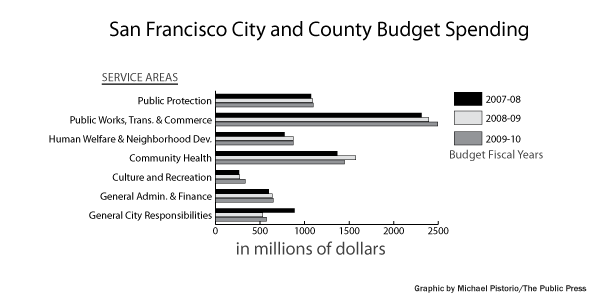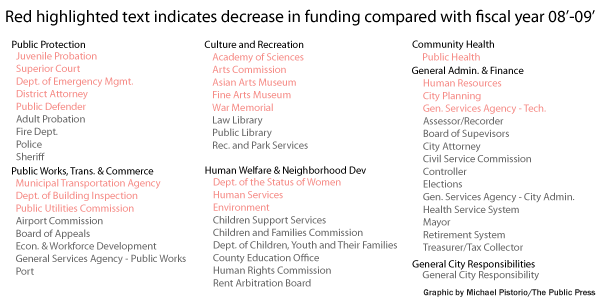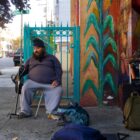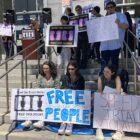Until last summer, the recession was something that happened somewhere else. The credit crunch was slow in reaching San Francisco because it was insulated from the subprime crisis unfolding across the country.
But now the recession has hammered the city’s budget and led to the largest shortfall in more than two decades. With a $438 million deficit, the city is scrambling to make up the difference — slashing 1,600 jobs, auctioning taxi medallions, slapping smokers with taxes to clean up cigarette butts.
Nearly every source of money has taken a hit this year:
- The credit crunch has decimated commercial real estate investors and developers, and is expected to shave property transfer tax revenues by 52 percent this fiscal year.
- Tourists, many of whom were Europeans lured by a cheap dollar, have stopped coming, and the city’s hotel tax shows it. Hotel room tax revenue is projected to decline by 38 percent. Tourists were able to keep San Francisco shielded from much of the subprime mess unfolding across the rest of California, but it only lasted through last summer. This fiscal year, sales tax revenues are expected to plunge almost 18 percent.
- Job losses and fewer new businesses have also trimmed the budget to a tune of $22.7 million. Business tax revenue, which comes from payroll and business license registration fees, is projected to dip by almost 6 percent.
Sacramento won’t be any help this year. The state must wrangle $24 billion in cuts to keep California on life support, and is hungrily eyeing cities for more money. This year, San Francisco will likely see its cut from state sales tax and vehicle license fees drop by more than 14 percent. Other state funding is expected to fall by 9.5 percent.
There could be further bad news. State politicians are now debating whether to tap $2 billion in property tax revenues from cities and counties across California. If the state Legislature approves the move, San Francisco could stand to lose an additional $91 million. And there could be more pain to come if the state trims other programs, like CalWORKS and Medi-Cal, that could result in over $200 million in losses. (The current city budget, however, does not reflect this cut since it has yet to be approved. The city’s fiscal year starts July 1 and runs until June 30, 2010.)
There is some good news amid the gloom. Federal money, charges for city services and an increase in property tax revenue are expected to help offset some of the hits the city’s general spending fund will take this year. Federal aid, much of it for health and human services, will increase a little over 14 percent. Thanks to a backlog in assessments, property tax revenue is projected to climb by about 4 percent.
San Francisco’s pain won’t end anytime soon. A pickup in the economy isn’t projected until the middle of next year, and most economists expect it won’t bring a large infusion of jobs or spending. It could actually get even worse: The deficit is expected to hit $615 million for the 2010 fiscal year, and $746 million the following year. 2009 could very well be remembered as the start of a more austere era.











